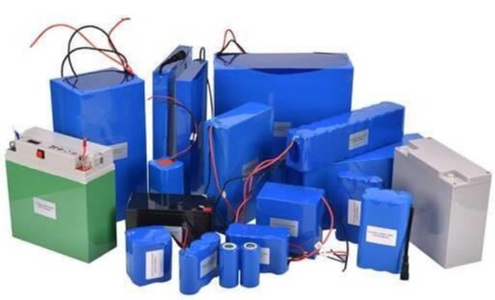Lithium Battery Technologies
our experienced Engineering, Design, Quality and Manufacturing teams, so that our customers can be assured of technically advanced battery solutions that meet the unique requirements of their specific applications. We specialize in rechargeable and non-rechargeable lithium cell and battery pack design as work with a variety of lithium cell chemistries to offer options and solutions for demanding applications worldwide.
Lithium Battery Pack Technologies
Our manufacturing capabilities enable us to build the most basic battery packs, to custom packs with specialized circuitry, connectors and housings. From low to high volume, we have the capability and industry expertise to meet the unique needs of all OEM’s as our experienced engineering team can design, develop, test and manufacture custom battery solutions for the specific needs of most applications.
IT Core Solutions offers solutions based on customer requirements and specifications. We partner with the industry leading cell manufacturers to provide the optimum solutions and we develop and integrate the most sophisticated control and monitoring electronics into its battery packs.
Lithium-ion, Lithium Polymer and Lithium Iron Phosphate
Lithium provides the highest capacity (ampere-hours or “Ah”) per unit weight of all metals, making it an ideal material for a lithium anode. Lithium battery pack systems offer distinct advantages over other battery systems, especially with respect to long life, reliability and capacity.
A lithium power source offers a significant advantage:
- A high voltage is needed (i.e. 3.0 to 3.9 volts per cell)
- A recharging circuit is not available or too costly
- The power source has to be as light weight as possible
- Long shelf life is required
- A wide temperature range is required
- Reliability is crucial
- Extremely high energy density is needed
- Environmental concerns such as temperature, vibration or shock are especially severe
- Your application demands a continuous source of power for extensive periods of time
Li-Ion and Li-Poly battery packs should always be used with a protection circuit to prevent the cell from over charging or over dis-charging. Choosing the correct circuit and applying it appropriately is vital to the longevity your batteries and your own safety.
- Important Note! We suggest that you should never use lithium ion/polymer batteries without protection cells. Without the protection, a slight mistake in their use could destroy the battery and they have a much higher risk of exploding or catching on fire.
Lithium Batteries
Lithium batteries are disposable (primary) batteries that have lithium metal or lithium compounds as an anode. Depending on the design and chemical compounds used, lithium cells can produce voltages from 1.5 V to about 3.7 V, over twice the voltage of an ordinary zinc-carbon battery or alkaline cell battery.
Lithium-Ion Batteries
Lithium-ion batteries are a type of rechargeable battery in which lithium ions move from the negative electrode (anode) to the positive electrode (cathode) during discharge, and from the cathode to the anode during charge. Lithium-ion batteries are common in portable consumer electronics because of their high energy-to-weight ratios, lack of memory effect, and slow self-discharge when not in use.
The three primary functional components of a lithium-ion battery are the anode, cathode, and electrolyte, for which a variety of materials may be used.
Commercially, the most popular material for the anode is graphite. The cathode is generally one of three materials: a layered oxide (such as lithium cobalt oxide), one based on a polyanion (such as lithium iron phosphate), or a spinel (such as lithium manganese oxide), although materials such as TiS2 (titanium disulfide) originally were also used.
Depending on the choice of material for the anode, cathode, and electrolyte, the voltage, capacity, life, and safety of a lithium-ion battery can change dramatically.
Lithium-Ion Battery Pack for GPS Tracking Device
Lithium Polymer (LiPo)
Lithium-ion polymer batteries, polymer lithium ion, or lithium polymer batteries are rechargeable (secondary cell) batteries, normally composed of several identical secondary cells in parallel addition to increase the discharge current capability.
Lithium Polymer Battery Pack
Lithium Polymer Battery Pack for Medical Application
Lithium Iron Phosphate (LiFePO4)
Phosphate based technology possesses superior thermal and chemical stability which provides better safety characteristics than those of Lithium-ion technology made with other cathode materials. Lithium phosphate cells are incombustible in the event of mishandling during charge or discharge, they are more stable under overcharge or short circuit conditions and they can withstand high temperatures without decomposing. When abuse does occur, the phosphate based cathode material will not burn and is not prone to thermal runaway. Phosphate chemistry also offers a longer cycle life.
